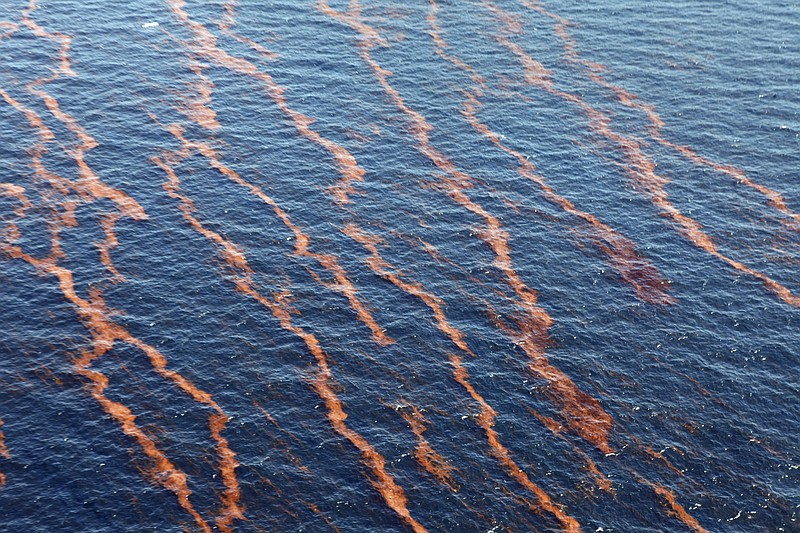NEW ORLEANS -- Environmental groups asked a federal court Wednesday to throw out the Trump administration's assessment of oil and gas activity's likely effects on endangered species in the Gulf of Mexico, saying it dismisses the chance of another disastrous blowout like the BP spill of 2010.
The National Marine Fisheries Service's 700-page analysis greatly underestimates the likely number and size of oil spills, according to the suit filed by Earthjustice on behalf of the Sierra Club, the Center for Biological Diversity, Friends of the Earth and Turtle Island Restoration Network.
Even though the study was prompted by the 2010 spill, it "essentially pretends the Deepwater Horizon spill never happened -- that there was nothing to learn from that disaster," Earthjustice attorney Chris Eaton said in an interview Tuesday.
The federal agency said it left the possibility of a large spill like BP's out of its calculations of likely effects because a Bureau of Offshore Energy Management analysis found little chance of another during the next 50 years.
The previous analysis, in 2007, also estimated that "such a large spill was extremely unlikely," the lawsuit noted. That analysis had estimated that "the largest spill possible would be at most 15,000 barrels," or 630,000 gallons.
The 2010 spill, which started with a blowout that killed 11 men, was hundreds of times bigger than that. A federal judge calculated damages based on 134 million gallons in the Gulf.
The chance of such a spill is even higher now, the lawsuit said, because "Gulf drilling is moving into deeper waters, which increases the possibility of a catastrophic well blowout and extremely large oil spill."
The study also failed to consider the increased frequency, because of climate change, of hurricanes that can severely damage oil and gas facilities, nor did it take into account recent research about the danger of underwater landslides that can cause large oil spills, the lawsuit said. In addition, it said, the analysis left out the BP spill's effects on the corals and other animals and their habitats, using population estimates and other information from before the spill.
Larry McKinney, chairman for Gulf strategies at Texas A&M Corpus Christi's Harte Research Institute for Gulf of Mexico Studies, called the National Oceanic and Atmospheric Administration Fisheries analysis one of the most detailed he's ever seen.
"Overall, I think they did as good a job as you can do with something like that," McKinney said.
He predicted the litigation will be lengthy because the report and lawsuit cover a lot of area and many species.

